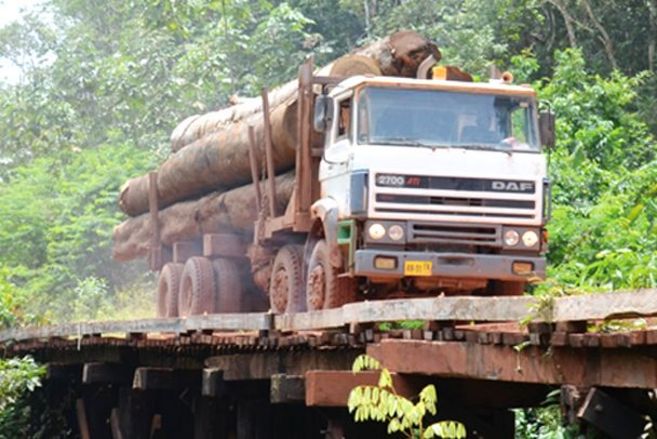Link to project website - WaVerNa (German)
Project
WaVerNa - Nature conservation contracts in forests

WaVerNa - Nature conservation contracts in forests Analyzing options of forest ecology, economics, and legislation.
Actually nature conservation in forests is implemented by either nature reserves, or voluntary self-commitment. Due to problems of acceptance and efficiency one could ask if nature conservation in forests would be reached more effectively by reimbursement of voluntary agreements.
Background and Objective
Until now nature conservation contracts in forests are sparsely established. However, in agriculture this kind of contracting is a very powerful instrument. Increasing voluntary nature conservation contracts in forests is a demand which is urged by stakeholders of forestry and of nature conservation since many years, and also is a political aim of high national priority as given in the national biodiversity strategy.
Reasons for the sparse application of nature conservation contracts in forest are manifold and reviewed insufficiently yet. Due to this background we will analyze opportunities and constraints of nature conservation contracts in the field of forest ecology, economics, and legislation. In a first step, we want to survey the actually implemented measures of nature conservation contracts in forests of Germany.
While our counterparts will study aspects of conservational forest ecology, forestry economics and legislation we are interested in public and private demand for measures of nature conservation contracts in forests. For instance we will study which kind of demand-orientated transaction costs are typical for such contracts, or how German government can efficiently reach formulated nature conservation goals by contracting. Additionally our sur-project undertakes coordination of the whole project
Target Group
Forest owners, administrations for nature conservation, forest administrations, associations, politics
Approach
In a first step, we carry out a nationwide online survey in order to get a general overview regarding the already implemented measures of nature conservation contracts. Then we explicitly explore implementation processes of nature conservation contracting. Based on data of the survey we will analyze concerted aspects in the fields of forest ecology, economics and legislation. The findings will serve as basis for documents of practical assistance and of recommendations for action.
Data and Methods
The methodical approach of our sur-project is principally based on institutional economics and case studies as basic input data.
Our Research Questions
What are the development potentialities and the constraints of nature conservations contracts regarding public and private consumers?
Results
The state dominates the demand for nature conservation for consideration. Due to this the demand is usually put into practice as administrative act. A comparison between the federal states shows that there are various implementations for the same measures, this results in different transaction costs. From the point of view of the state as demander a coherent and continuous institutional arrangement is needed for the development of an efficient and effective nature conservation contract policy.
Also from the point of view of the other parties, continuity in financing and measure demand is an important factor of success regarding the implantation of nature conservation contracts in forests. Furthermore, for the improvement of prospects of nature conservation contracts policy flexibility, fairness and legal certainty are crucial factors. These four factors of success will probably not be fulfilled under actual environment.
Our overall conclusion is that a fundamental restructuring of nature conservation contracts policy in forests is needed. Important points to consider during such a restructuring are: adequate and long-term secured financing, reliable basis of trust among the parties and involvement of engaged intermediaries. Furthermore, the procedure of actual nature conservation programs, usually funding procedures, should be restructured. New procedures should be easy to understand and flexible in implementation, include an risk compensation regarding species protection legislation and recognise forest owners performance regarding nature protection as an actual achievement.
Thünen-Contact

Involved Thünen-Partners
Involved external Thünen-Partners
- Georg-August-Universität Göttingen
(Göttingen, Deutschland) - Nordwestdeutsche Forstliche Versuchsanstalt (NW-FVA)
(Göttingen, Hann. Münden, Deutschland) -
Universität Hamburg
(Hamburg, Deutschland)
Funding Body
-
Fachagentur Nachwachsende Rohstoffe e.V. (FNR)
(national, öffentlich)
List of Publications
- 0
Seintsch B, Franz K, Meyer P, Möhring B, Paschke M (2018) Das WaVerNa-Forschungsprojekt im Überblick. AFZ Der Wald 73(21):10-12
- 1
Franz K, Blomberg M von, Demant L, Dieter M, Lutter C, Meyer P, Möhring B, Paschke M, Seintsch B, Selzer AM, Spellmann H (2018) Perspektiven für den Vertragsnaturschutz. AFZ Der Wald 73(21):30-33
- 2
Kownatzki D, Blomberg M von, Demant L, Lutter C, Meyer P, Möhring B, Paschke M, Seintsch B, Selzer AM, Franz K (2018) Status quo der Umsetzung von Naturschutz im Wald gegen Entgelt in Deutschland : Ergebnisse einer Befragung von Stiftungen. Braunschweig: Johann Heinrich von Thünen-Institut, 65 p, Thünen Working Paper 82, DOI:10.3220/WP1513066749000
- 3
Selzer AM (2018) Status quo der Umsetzung von Naturschutz im Wald gegen Entgelt in Deutschland : Übersicht über die Instrumente der staatlichen Nachfrager. Braunschweig: Johann Heinrich von Thünen-Institut, 100 p, Thünen Working Paper 83, DOI:10.3220/WP1513067013000
- 4
Selzer AM, Franz K, Seintsch B (2018) Wald(vertrags)naturschutz aus Sicht der Nachfrager. AFZ Der Wald 73(21):20-23
- 5
Kownatzki D, Blomberg M von, Demant L, Lutter C, Meyer P, Möhring B, Paschke M, Seintsch B, Selzer AM, Franz K (2017) Status quo der Umsetzung von Naturschutz im Wald gegen Entgelt in Deutschland : Ergebnisse einer Befragung von Forstbetrieben. Braunschweig: Johann Heinrich von Thünen-Institut, 79 p, Thünen Working Paper 81, DOI:10.3220/WP1513066278000
Duration
10.2015 - 12.2018
More Information
Project funding number: 22023014
Funding program: FNR
Project status:
finished








